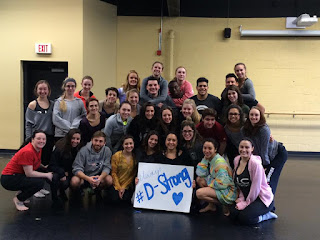Reflection
1. What messages did you receive about LGBT community when you were in school? Which messages were explicit, which were implied?- To be honest, I had no idea what it meant to be gay until probably middle school. In grades K-5, we were completely uneducated about the LGBT community. We were read the traditional stories, and the idea of the typical mother, father and children family was implanted into our minds. Personally, I was first exposed to the topic when my nine or ten year old self made the mistake of calling another kid "gay" at a playground camp. Listen, I was like 9. I had no idea what I was talking about. After getting punished for doing so, I remember my mom telling me at dinner that my sister had a girlfriend. After learning this, I felt terrible for using the word as a negative comment towards somebody else, loved my sister just as much as I did before, and learned to appreciate, respect and treat people in the LGBT community as equal as anybody else :) Looking back, I do wish that I had been informed at an earlier age about the community. I think it would highly benefit children, encouraging them to be open minded and never run into a situation where the word "gay" could be used as slander.
2. Did you ever question these messages If so, what empowered you to do so? If not, what would have helped you to question them?
- After learning about about same-sex relationships, I never questioned this messages. I honestly think it was having somebody so close to me involved in the LGBT community that always made me feel love for those involved. While about 99.9% of my family approved of my sister, there still was the 1% that did not. Seeing their negativity towards them only made me upset, wondering why such hatred was involved with two people simply loving one another. If I were to ever have questioned them, it probably would have been if nobody personally close to me was gay, I think I would have been a little less exposed at that early point in my life.
3. What do you know about the gay civil rights movement?
- I know that the date of June 26, 2015 was a very important day for my family and I because same-sex marriage was now legal nationwide.
4. Do you talk to the youth in your life about what they are learning about the LGBT community in their curriculum?
I have two little sisters, one turning four and one 10 months old. They are not in an education system yet and have yet to question the LGBT community. I hope that when they are exposed to it they will feel comfortable to talk and ask questions, giving me the opportunity to help them understand.
Points to Share:
Overall, I 100% agreed with everything these authors stated. Most importantly, I found it shocking to read all of the stories in which the LGBT community was looked negatively upon in schools to young children. The story of the young boy getting an ISS for simply discussing that he had two mothers to another student was truly heartbreaking. I can only hope that someday our country can look back on these horrific incidents and shake our heads. I have faith for the students that are facing this negativity and hope that our education systems can only inflict happiness, creating a comfortable environment for ALL students.
Also, a friend of mine proposed to his boyfriend and now the video is over 5 million views and shares. Check it out :)









